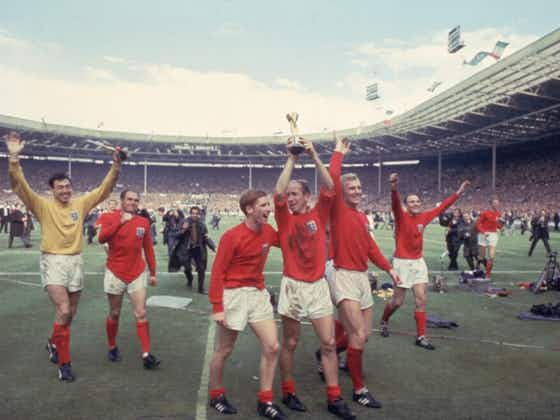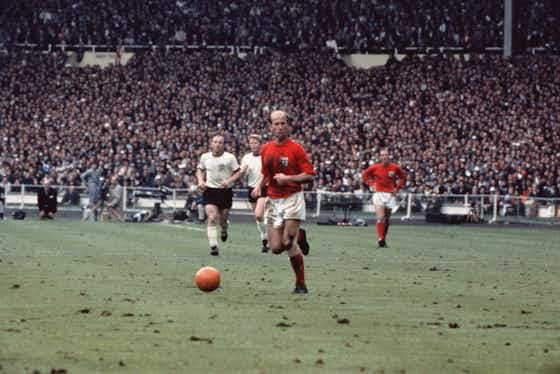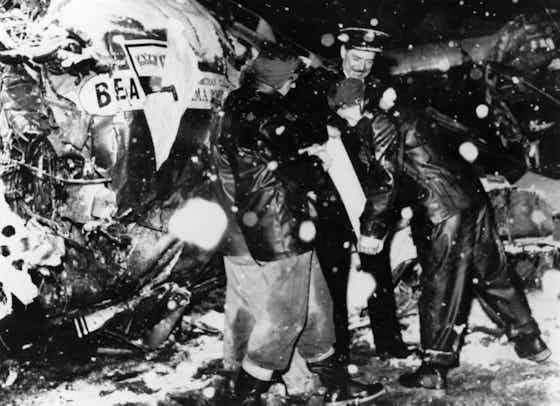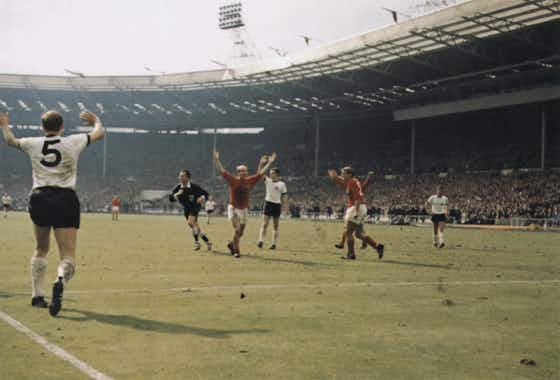OneFootball
Dan Burke·13 November 2022
World Cup Legends: From disaster to triumph 🏴

In partnership with
Yahoo sportsOneFootball
Dan Burke·13 November 2022

As the 2022 World Cup approaches, we are running through 10 of the biggest legends in World Cup history and how exactly they wrote their names into the history books.

Sir Robert Charlton CBE is a legend in every sense of the word.
The former midfielder is one of the greatest footballers England has ever produced and, after emerging as one of the famous Busby Babes, he won three league titles with Manchester United, the 1963 FA Cup and was the star of the club’s incredible 1968 European Cup winning team.
But what makes Charlton’s story so remarkable is that it very nearly ended in tragedy before it had even really begun.
In February 1958, the youngster was part of the United squad which overcame Red Star Belgrade in a European Cup quarter-final, with Charlton scoring twice in the second leg.
However, it was during the trip home from the former Yugoslavia that disaster struck. The aeroplane taking the United players and staff back to Manchester had to stop in Munich to refuel with heavy snow falling. When the plane then tried to take off again, it clipped a fence at the end of the runway and a wing tore through a nearby house, setting it alight.

Seven players died at the scene and the crash claimed 23 lives in total. Charlton was hospitalised for a week with cuts to his head and severe shock, but he was one of the lucky survivors and probably would have died too had he not swapped seats with a team-mate before the plane tried to take off again.
The Munich Air Disaster remains one of the most tragic events in the history of British football and Charlton was just 20-years-old at the time.
But remarkably, he and his fellow surviving team-mates were back playing again less than a month later, and not long after that he also made his debut for England in a 4-0 victory over Scotland at Hampden Park.
He was selected for the 1958 World Cup in Sweden but didn’t play at the tournament, and it was the 1962 World Cup in Chile where he truly announced himself on the world stage, although England were eliminated in the quarter-finals by eventual winners Brazil.
Four years later Charlton was in the prime of his career and England manager Alf Ramsey built the team around the attacking midfielder as the Three Lions hosted the World Cup on home soil for the first and, so far, only time.
Charlton scored in a 2-0 win over Mexico in England’s second match, but his best performance was in the semi-final at Wembley, when his two goals helped England overcome Portugal 2-1, setting up a showdown with West Germany in the final.
The final is remembered more for Geoff Hurst’s hat-trick and that controversial goal which may or may not have crossed the line but England won 4-2 after extra-time and, just eight years on from the Munich air disaster, Charlton was a world champion.

He played at one more World Cup in his career and finished with 106 England caps and 49 goals for his country – a record which stood until it was broken by Wayne Rooney in 2015.
But lifting the World Cup in ’66 was undoubtedly the pinnacle of Charlton’s illustrious career.
“I got really emotional,” Charlton told History of Football in 2016 when reflecting on what it was like to win the World Cup.
“I started thinking about when I was a little lad and I used to dream about being a footballer. I used to think about the fans, look at them and listen to them. It was just magic and I broke down. When the whistle went all the nerves and all the concentration and everything that had gone into it suddenly released.
“From a satisfaction point of view you couldn’t do any more as a professional player. I would like to have won it outside England maybe, but it didn’t matter, we beat the best on our own pitch and I think we’d have beaten them wherever we were. We were the best team in the world at that particular time.
“My life has never been the same since. There isn’t a day ever goes past that nobody mentions the World Cup to me in ’66, even little lads now come to me and ask ‘What was it like to win the World Cup, Bobby?’
“It’s history, the greatest moment in English sport I think without any question, and it was tough, a hard slog to do it, but if you’re a professional footballer it’s the ultimate.”






























































